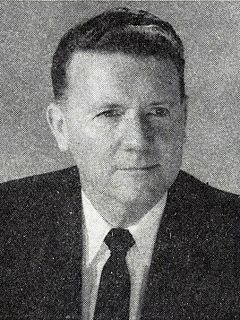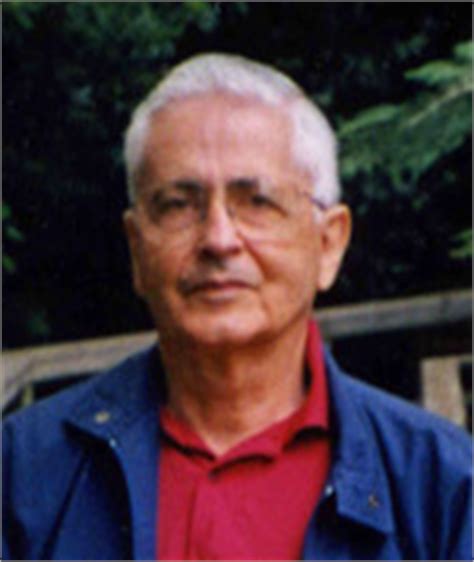A Quote by Dwight D. Eisenhower
The hope of the world is that wisdom can arrest conflict between brothers. I believe that war is the deadly harvest of arrogant and unreasoning minds. And I find grounds for this belief in the wisdom literature of Proverbs. It says in effect this: Panic strikes like a storm and calamity comes like a whirlwind to those who hate knowledge and ignore their God.
Related Quotes
A philosopher is a lover of wisdom, not of knowledge, which for all its great uses ultimately suffers from the crippling effect of ephemerality. All knowledge is transient, linked to the world around it and subject to change as the world changes, whereas wisdom, true wisdom is eternal, immutable. To be philosophical one must love wisdom for its own sake, accept its permanent validity and yet its perpetual irrelevance. It is the fate of the wise to understand the process of history and yet never to shape it.
WISDOM IS dependent upon knowledge. Where there is complete ignorance there can be no wisdom, no knowledge of the right thing to do. Man’s knowledge is comparatively limited and so his wisdom must be small, unless he can connect his mind with a knowledge greater than his own and draw from it, by inspiration, the wisdom that his own limitations deny him. Only God knows all truth; therefore only God can have Real wisdom or know the right thing to do at all times, and man can receive wisdom from God. Wisdom is obtained by reading the mind of God.
We have been counseled to "seek . . . out of the best books words of wisdom." It is pointed out in Proverbs, "Wisdom is the principal thing; therefore get wisdom." (Proverbs 4:7.) But in getting wisdom and getting knowledge, above all we should "get understanding." It is important to learn a profession, learn a trade. That applies not only to the young men, but it applies to you young women as well. You girls should place yourselves in a position to be self-supporting and independent in the event that tragedy or an emergency comes, for emergencies have come and will continue to come.
Wisdom and knowledge can best be understood together. Knowledge is learning, the power of the mind to understand and describe the universe. Wisdom is knowing how to apply knowledge and how not to apply it. Knowledge is knowing what to say; wisdom is knowing whether or not to say it. Knowledge gives answers; wisdom asks questions. Knowledge can be taught, wisdom grows from experience.
Wisdom cannot be imparted. Wisdom that a wise man attempts to impart always sounds like foolishness to someone else ... Knowledge can be communicated, but not wisdom. One can find it, live it, do wonders through it, but one cannot communicate and teach it.”
- Hermann Hesse, Siddhartha "We don't receive wisdom; we must discover it for ourselves after a journey that no one can take for us or spare us from.
I'm always looking for ways to explore the politics of the everyday. For me, the proverbs were a way of bringing in this ancient wisdom that in Arabic culture is often quoted. Those proverbs are such a huge part of the language and parts of people's every day. This is the wisdom that we use in our everyday life but we're not always listening to.
I am confident that those who believe in belief are wrong. That is, we no more need to preserve the myth of God in order to preserve a just and stable society than we needed to cling to the Gold Standard to keep our currency sound. It was a useful crutch, but we've outgrown it. Denmark, according to a recent study, is the sanest, healthiest, happiest, most crime-free nation in the world, and by and large the Danes simply ignore the God issue. We should certainly hope that those who believe in belief are wrong, because belief is waning fast, and the props are beginning to buckle.
The ultimate difference between God's wisdom and man's wisdom is how they relate to the glory of God's grace in Christ crucified. God's wisdom makes the glory of God's grace our supreme treasure. But man's wisdom delights in seeing himself as resourceful, self-sufficient, self determining, and not utterly dependent on God's free grace.
A few years ago you couldn't go from TV to film. It was like a 'no no' but I believe when you find a plan and purpose that God has for your life, there's not anything man can do to you. Especially when your faith is not really standing in the wisdom of man, you're really standing in the wisdom of God.
During the last century, and part of the one before, it was widely held that there was an unreconcilable conflict between knowledge and belief. The opinion prevailed amoung advanced minds that it was time that belief should be replaced increasingly by knowledge; belief that did not itself rest on knowledge was superstition, and as such had to be opposed. According to this conception, the sole function of education was to open the way to thinking and knowing, and the school, as the outstanding organ for the people's education, must serve that end exclusively.
Proverbs, and the wisdom literature in general, counter the idea that being spiritual means handing all decisions over to the leading of the Lord. The opposite is true. Proverbs reveals that God does not make all people’s decisions for them, but rather expects them to use his gift of reason to interpret the circumstances and events of life within the framework of revelation that he has given. Yet when they have exercised their responsibility in decision-making, they can look back and see that the sovereign God has guided.

































